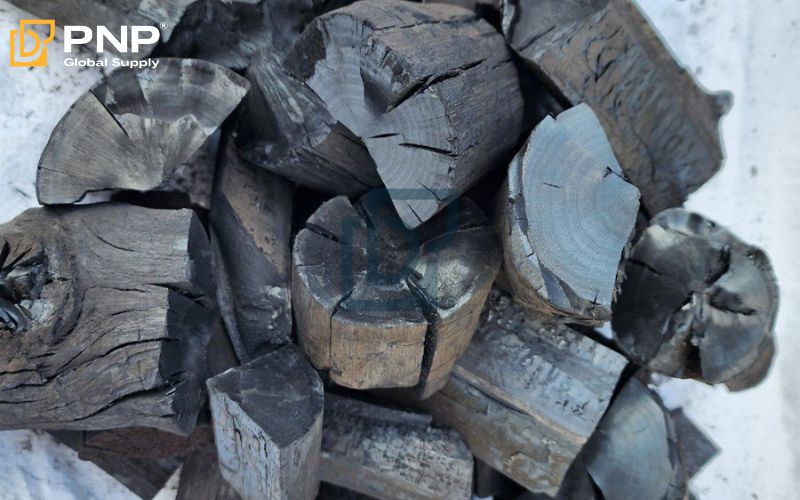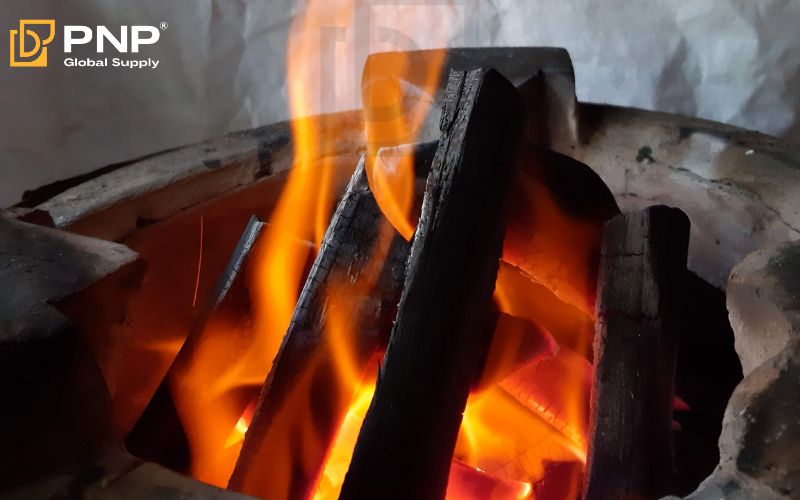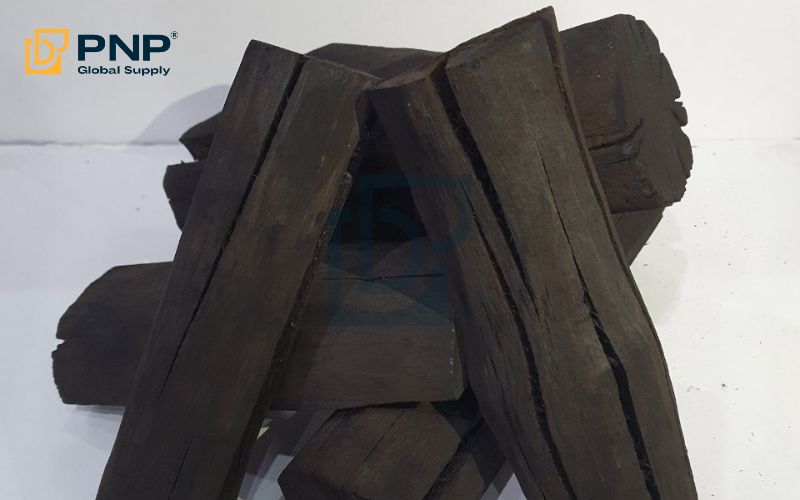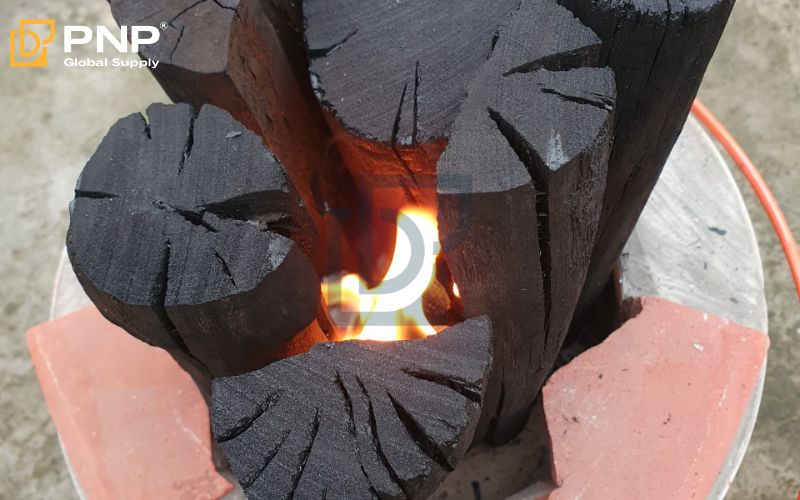Mangrove charcoal offers high heat and long burn time, perfect for BBQ grilling. Free samples, OEM services, and reliable exports to Taiwan, Singapore, Hong Kong, Australia, Bahrain, Kuwait, New Zealand, and China.
Mangrove charcoal is widely preferred because of its smokeless, odorless feature. Plus, it produces high and consistent heat, making it the perfect charcoal for BBQ parties.
PNP is proud to say that Mangrove charcoal is our primary product! We are our own supplier of mangrove wood – the main material to make mangrove charcoal. With this considerable advantage, PNP manages to supply mangrove charcoal in stable quantities at a competitive price.
Discover the top-notch characteristics of Mangrove charcoal. This article discusses some of the distinct advantages and aspects of Mangrove charcoal that make it stand out in terms of effectiveness and sustainability. In addition, find out how the premium quality Mangrove charcoal by PNP Charcoal has made itself known in such a way that it is considered by many people who are looking for high-grade environment-friendly fuel for grilling among other uses. Here are reasons why you might consider this type of charcoal plus its effects on cooking tastes.
Mangrove charcoal is a form of charcoal that is obtained from the wood of mangrove trees. Mangroves are a form of trees that grow in coastal areas within the tropical and subtropical areas in this world. Charcoal, being in itself dense and enriched with carbon, hence qualifies to be a worthy fuel in terms of durability and heat production compared with other forms of charcoal. It is highly sought after for cooking food, especially barbecue or grill food, due to the unique flavor it gives. Its production has, however, created some environmental problems associated with the loss of mangrove forest cover. In the process, its importance in mangrove forests was realized in coastal ecosystems, capturing carbon, and protecting shorelines from erosion. This has created a need for finding sustainable means of charcoal production and other sources of charcoal with minimal environmental impacts.

Mangrove charcoal is an eco-friendly alternative to traditional wood charcoal. It reduces deforestation by using charcoal from sustainably managed mangrove forests, which can regrow.
Damage to the primary forests often cut to make wood charcoal, is reduced by mangrove charcoal. This way of managing mangrove forests sustains a constant supply of wood without having to cut down more; hence, biodiversity and critical habitats are protected.

It is believed that mangrove charcoal is a carbon-neutral fuel. Carbon that is emitted while burning will be compensated for by the carbon that mangrove trees consume through their growth. This, therefore, gives a better environment than what would have happened if fossil fuels were used, which add more carbon into the atmosphere.
Effective Combustion and Heat Generation mangrove charcoal exhibits a relatively high density and carbon content, which allows for efficient burning and higher productions of heat. This will translate to the cost-effectiveness of using less charcoal to make the same amount of heat needed in a process. A reduction in overall demand for fuel goes a long way toward environmental sustainability.
Sustainable mangrove harvesting is important in maintaining coastal ecologies. That means selective cutting, which includes the harvesting of only mature trees while allowing younger ones the space to continue in their growth and regeneration. To that respect, a regulated schedule of cutting assures no destabilization of mangrove populations occurs so that they are able to go on providing their contribution to an environment very critical in terms of protecting coastlines from erosion and supporting varied marine life. Moreover, management of such practices is often aided by local communities, making sure that the benefits of harvesting are balanced against the conservation effort.

The course of making mangrove charcoal begins with the collection of cut mangrove wood. The wood, after collection, is chopped into parts and undergoes pyrolysis—that is, it is heated without oxygen to turn it into charcoal. Mostly, this process happens in kilns or traditional earth mounds, many of which work differently and have different impacts on the environment. Subsequently, after making the charcoal, it is cooled, sorted, and packed for selling. Careful control of the pyrolysis process should be done to create good quality charcoal while reducing pollution and lessening the impact on the environment.
Mangrove charcoal is very essential for grilling due to its special qualities that help in creating a better experience in cooking. Its unique features are on creating better taste, lasting longer when burning, and making grilling cleaner than other kinds of charcoal. This is why many cooking fans and professional chefs choose it to make their grilling better.
Mangrove charcoal provides a special light smokiness to grilled foods, enhancing their flavor. That unique depth of flavor that the charcoal gives, derived from mangrove wood, refines the taste of the meat and vegetables, thus increasing the overall taste of dishes. Many people say its flavor is more complex and detailed than other kinds of charcoal.

Another key advantage that can be linked to mangrove charcoal, hopefully winning many consumers over, is its long-lasting burn. The dense structure of this charcoal makes it give off steady, high heat over a relatively long time; this is most ideal for slow cooking and grilling large quantities of food. An extended burn time will minimize the need for frequent reloading; thus, most convenient and effective for cooking over long periods.
Mangrove charcoal makes very little smoke when grilling, which creates an enjoyable experience in cooking. This less smoke serves two good conditions: indoor and outdoor grilling, as it is an effective way to avoid smoke-related problems and keeps the whole place cleaner. Low smoke also means less food flavor loss, hence a more pleasurable experience when grilling.
Mangrove Charcoal, in short, provides an exclusive mixture of superior efficiency, eco-friendliness, and extraordinary taste booster for a variety of barbequing and culinary uses. Being dense and smoldering for long periods makes it a good selection for perfect results. For quality Mangrove charcoal and more premium charcoal products, get in touch with PNP Charcoal to enjoy better performance and need-based services.
What is TT & LC ?
Process:
1. Should I choose PNP as my supplier?
As we supply mangrove wood ourselves, PNP has the competitive advantage of legal and sustainable charcoal quantity. Plus, with our expertise in logistics, we can guarantee our products get to your countries on schedule!
2. How does PNP maintain product safety and quantity?
Understanding the possible risks of charcoal manufacture and delivery, PNP always complies with the fire and explosion regulations while packing and transporting our products.
3. What is the price of this product?
If you are interested in our products, don’t hesitate to give us a call so that we can get you the most precise quotation about our mangrove charcoal.
